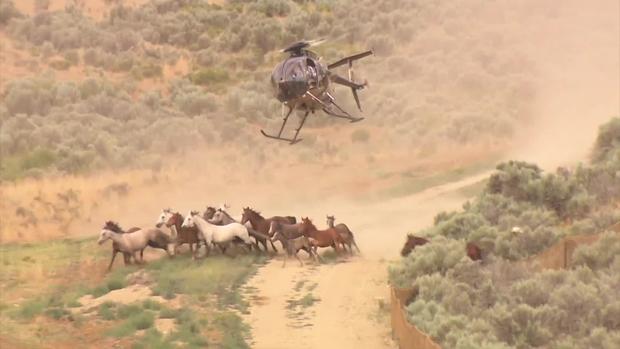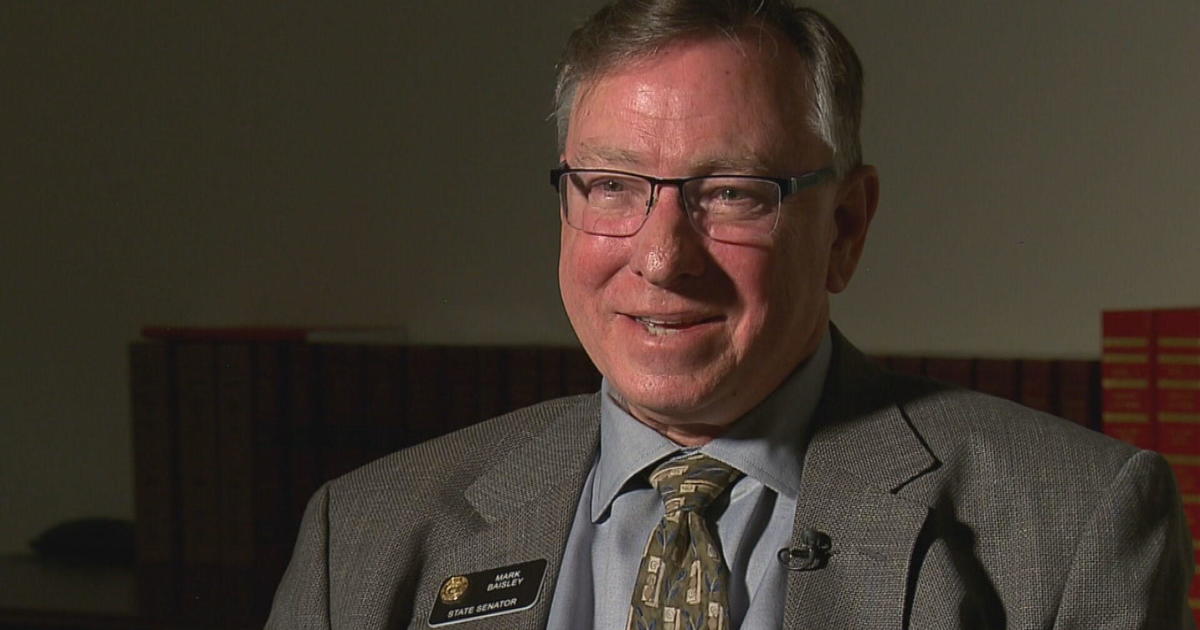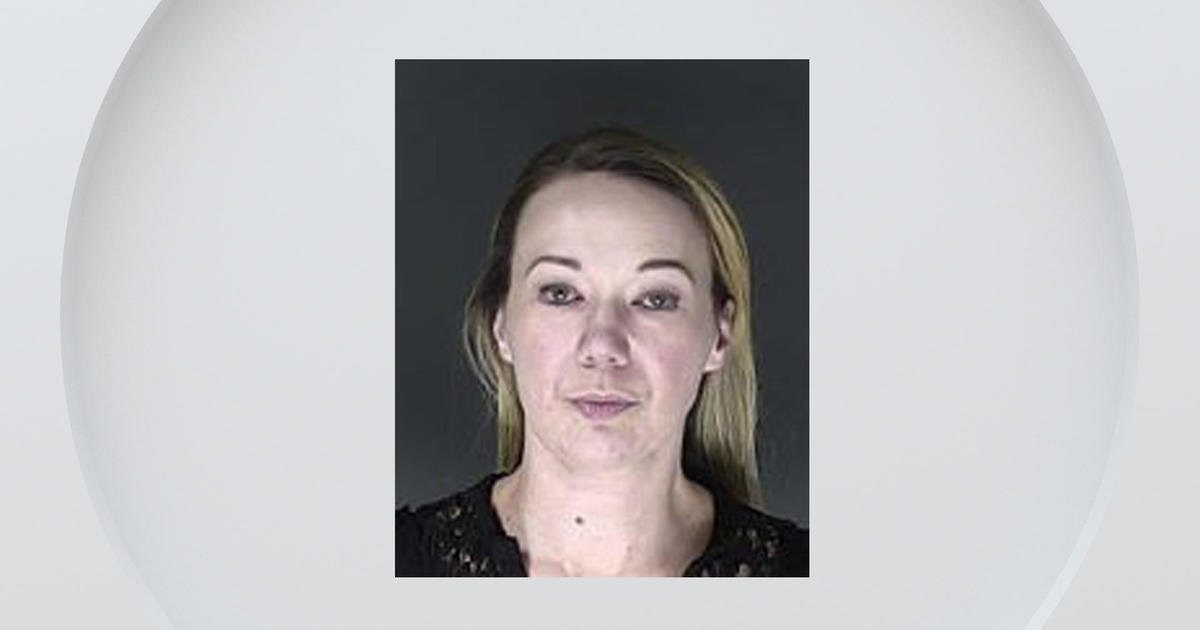New bill aimed to minimize controversial wild horse roundups and removals in Colorado to become law
A first-of-its-kind bill is set to be signed into law this Saturday, and it's all about protecting Colorado's wild horses. The bill's sponsors believe it could serve as a model for other states across the American West.
One of the bill's sponsors, House Majority Leader Monica Duran, says she's been working on the bill for more than two years.
She says the federal Bureau of Land Management's helicopter roundups in recent years of hundreds of wild horses in the Sand Wash Basin and in the Piceance Basin on Colorado's western slope garnered outcries from countless concerned citizens.
The BLM spends millions in tax dollars to round up mustang herds and remove them from wild ranges in other states, too.
The horses are sent to holding facilities to either be adopted or live permanently in federal custody. Activists feel the copter roundups are cruel and can lead to horse injuries and deaths.
The feds say the roundups are necessary to manage the rangelands, saying if horse populations are kept unchecked, there won't be any forage left.
But Colorado's mustangs share the range with private ranchers, who rent the land for their sheep and cattle to graze. The Investigators uncovered last year that the private ranchers are getting a cheap deal from the government, and are not covering the costs it takes to remove the horses.
Read or watch that investigation by clicking here.
So, legislators passed a bill aiming to find a solution that works for everyone. The bill creates a state-sponsored working group, called the Colorado Wild Horse Management Project, where ranchers, activists, community members, and government leaders will all have a seat at the table to determine the best ways to protect the mustangs.
The bipartisan bill creates a $1.5 million budget for the Wild Horse Project, and programs for fertility control to help increase horse birth control treatments, and a stewardship program to manage range health.
To read a full copy of the bill, click here.
"I'm hoping what it's going to do is highlight the fact that we can do better," Duran said. "Putting together a working group, I think, is amazing, because you have folks from all different walks of life on this working group, and most importantly, including our southern Ute tribes. This is really their land and it was important for us to have them there and I think they'll be figuring out how do we handle this in the future, what do we need to do and will really have that thought process going to figure out solutions."
Bill sponsors say the legislation is trailblazing new territory, as it taps into an issue that was previously only federally managed.
"We look at it as more of a blessing that we can do something from the local level," said House Minority Leader Mike Lynch, another bill sponsor. "The exciting part about this bill is that it actually brings together a group of stakeholders that have not been brought together before to really analyze this issue from a local perspective, a perspective that the national level doesn't necessarily bring."
He and Duran admit the final copy of the bill isn't exactly what was imagined in the beginning, but they believe it's a strong first step in the right direction.
"There was a lot of controversy that came up on how we would actually put heads together to formulate the best plan," Lynch said. "This is an issue that is somewhat controversial, because when you start dealing with horses on the wild range, you get the attention of farmers and ranchers out there that are concerned about grazing lands and the ability for them to put their cattle out, and the impact of the horses that compete with that same forage."
Duran says the working group will be required to check in with the state within a year on progress.
"We wanted to give them some time, because we know this is something that's not going to happen in three months or six months, so we wanted to allow them time to get organized, create the working group with the criteria that's in the bill, and then come back to us... within a year, and then kind of keeping us, both the minority leader and myself, notified," Duran said. "We're really going to be hands on as bill sponsors, as to the process, and what they're doing, and what they're coming up with."
Activists like Sandra Hagen Solin with the American Wild Horse Campaign say the bill could also help save millions in tax dollars in the long run.
"It is exceptionally expensive to house these horses once they are off the range, than to keep them on the range," Hagen Solin said. "We do see this as taxpayer-friendly legislation."
Hagen Solin says it's exciting to see Colorado's political leaders making legislative change for wild horses for the very first time.
"We really do see this as potential model legislation. Every state is unique, but the challenge before them is the same as it is for us, and that is finding a path that works for all sides of the issue, and the various concerns that all the interests have on this," Hagen Solin said. "We are very hopeful that others look to Colorado as an example of the way in which meaningful conversations can unfold to the benefit of the horses, and we're really talking about retaining horses on their wild lands as much as possible, and minimizing the need for removals."
Governor Polis' office says he plans to sign the bill on Saturday in Grand Junction.
CBS News Colorado reached out to the BLM for a comment, but has not yet received a response.





